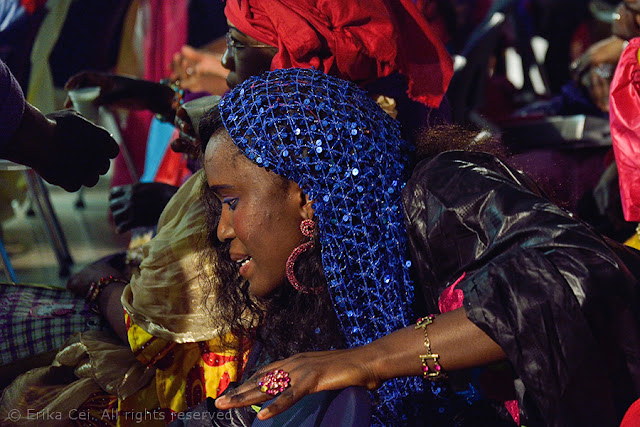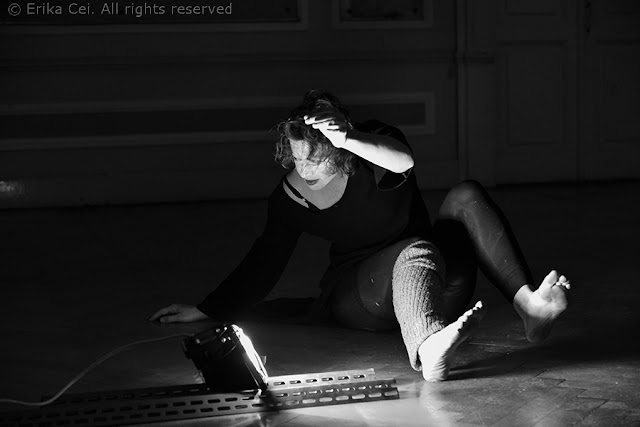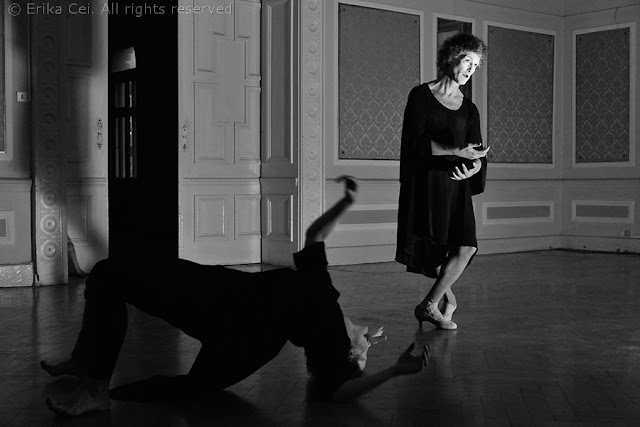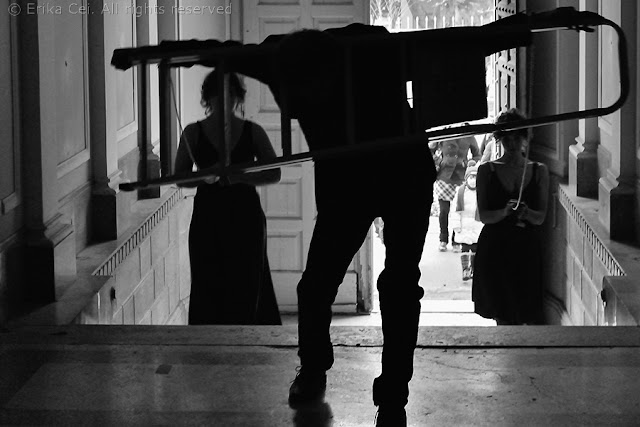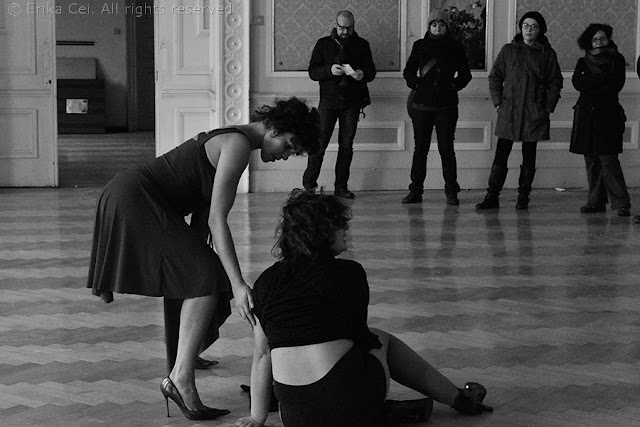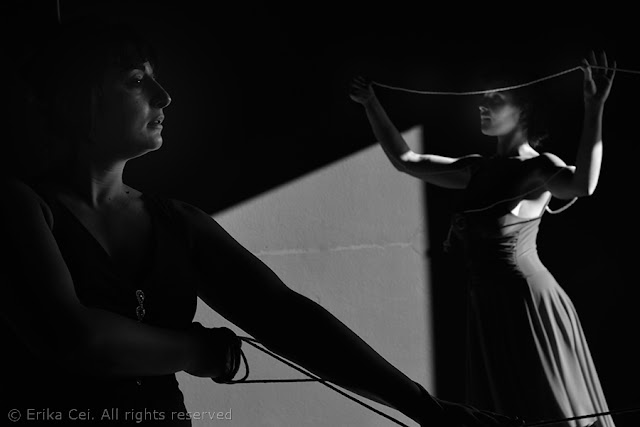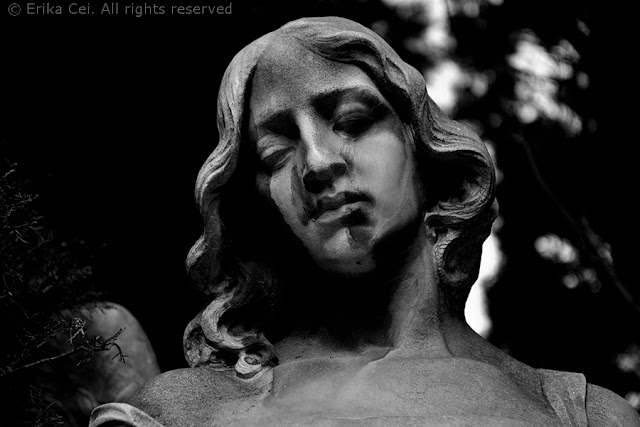In wolof (dialetto senegalese parlato dall'omonima popolazione) Magal significa rendere omaggio, celebrare, magnificare e consiste in atti di gratitudine resi al Signore e al suo Profeta Maometto.
Nella comunità murid (*), (confraternita religiosa mussulmana di derivazione Sufi, nata nel 1883 in Senegal), si festeggiano numerosi Magal, ma il più importante è il Grand Magal di Touba, che viene celebrato il 18 del mese lunare di Safar e che commemora la partenza per l'esilio in Gabon di Shaikh Aamadu Bàmba Mbàkke, fondatore della confraternita stessa, oltre che della città di Touba. Un esilio cui il capo spirituale della Murīdiyya (**) fu costretto, nel 1895, dal governo coloniale francese, che non vedeva di buon occhio la sua influenza crescente sulla popolazione senegalese né la sua critica antiviolenta nei confronti dell'autorità coloniale. Un esilio che si trasformò in un viaggio spirituale lungo sette anni, in mezzo a sofferenze, preghiere, meditazioni e speranze.
Nella comunità murid (*), (confraternita religiosa mussulmana di derivazione Sufi, nata nel 1883 in Senegal), si festeggiano numerosi Magal, ma il più importante è il Grand Magal di Touba, che viene celebrato il 18 del mese lunare di Safar e che commemora la partenza per l'esilio in Gabon di Shaikh Aamadu Bàmba Mbàkke, fondatore della confraternita stessa, oltre che della città di Touba. Un esilio cui il capo spirituale della Murīdiyya (**) fu costretto, nel 1895, dal governo coloniale francese, che non vedeva di buon occhio la sua influenza crescente sulla popolazione senegalese né la sua critica antiviolenta nei confronti dell'autorità coloniale. Un esilio che si trasformò in un viaggio spirituale lungo sette anni, in mezzo a sofferenze, preghiere, meditazioni e speranze.
Nel giorno del Grand Magal milioni di murid, in tutto il mondo, si riuniscono in un momento di preghiera collettiva, nello spirito della mistica di Aamadu Bàmba, imperniata sulla conoscenza e la fedeltà ai principi base dell'Islam, alle sue leggi, ai suoi libri sacri, alle sue pratiche di culto, nonché sulla dirittura morale, la purezza, la devozione alla comunità.
Così è avvenuto anche a Trieste, il 22 dicembre scorso, al Palazzo dei Congressi della Stazione Marittima, con la partecipazione di numerosi fedeli provenienti, oltre che da Trieste, anche da Gorizia e Udine.
Salmodie dei poemi di Aamadu Bàmba, letture del Corano, preghiere, conferenze si sono alternate nel corso della commemorazione, intervallate dal pranzo, a base di riso, carne di manzo, pollo, verdure varie, uova, preparato dalle donne nei due giorni precedenti, dai giochi dei bambini e da momenti di socialità tra adulti, accompagnati da bicchieri di te e caffè Touba (bevanda particolarmente gustosa, aromatizzata con lo “jarr” - pepe di Guinea).
Una grande festa, dunque, all'insegna della solennità religiosa ma anche della convivialità, aperta non solo ai fedeli mussulmani bensì alla comunità di Trieste intera, segno quest'ultimo di un'ospitalità e di una generosità che parlano da sé, senza bisogno di ulteriori commenti, forse “solo” di qualche riflessione.
Prima di lasciare la parola alle immagini che, in questo casospecialmente raccontano molto di più di quanto possa fare il linguaggio scritto, vorrei ringraziare di cuore Niang Cheikh, Sadiop Ndiage, Aina Wade Baro, l'Associazione senegalesi di Trieste e tutti gli altri amici che mi hanno accolto, ospitato, aiutato in vario modo nel corso della bellissima giornata passata in loro compagnia.
شكرا جزيلا
(*) "termine che deriva dall'arabo murīd (colui che aspira a) e che viene generalmente utilizzato nel Sufismo per designare il discepolo di una guida spirituale", fonte: http://www.bahaistudies.net/asma/mourides.pdf, pag. 1
(**) confraternita murid, "yoonu murit in wolof, ةيديرملا ةقيرطلا , Aṭ-Ṭarīqat al-Murīdiyya o semplicemente,ةيديرم Murīdiyya in arabo", fonte: ibid.

